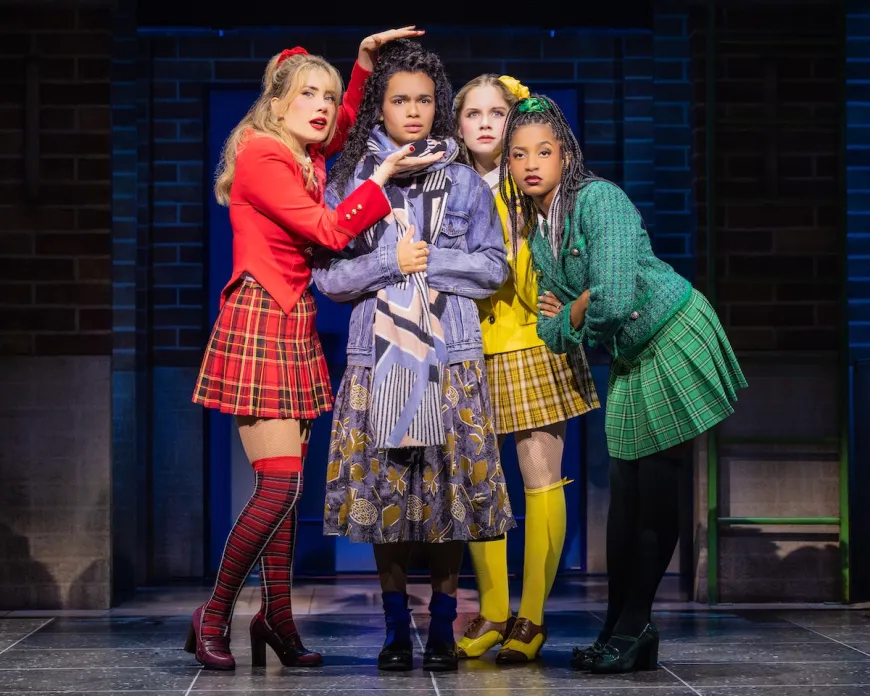Bootlegs, Boundaries, and the Curious Case of “Heathers”
(Photo: Evan Zimmerman)
by Chris Peterson
Last week, the team behind Heathers the Musical issued a firm statement: Stop bootlegging our show. They called it a “major no-no,” comparing it to “cheating on a quiz,” and made it clear that filming live performances is not only illegal but also disrespectful to the cast, crew, and creative team.
And they’re right.
Recording a live show without consent strips away the intimacy of the moment. It turns something communal into something transactional. It puts actors in a vulnerable position, especially when clips taken out of context spread like wildfire online. That’s particularly relevant for Heathers, which includes scenes with emotional trauma, violence, and intense choreography. Filming actors mid-performance, often without their knowledge, erodes trust between performer and audience.
But here’s the part that makes this story more complicated: Heathers the Musical owes a good portion of its international success to bootlegs.
Long before the show had official UK or Australian productions, grainy videos of the 2014 New York run found their way onto Tumblr, YouTube, and eventually TikTok. Teen fans who couldn’t afford a trip to New World Stages memorized Barrett Wilbert Weed’s “Dead Girl Walking” riff through shaky phone footage. The aesthetic, the sass, the sardonic bite of the book—it all traveled through unofficial channels. And it worked. Bootlegs helped Heathers build a global fanbase, sell cast recordings, and fuel demand for future productions.
That doesn’t mean recording is suddenly okay. But it does mean the conversation isn’t black and white.
Theatre is expensive and geographically limited. For every viral bootleg, there are thousands of young fans who live too far away or don’t have the means to attend a live show. They’re not trying to pirate a product. They’re trying to connect. They want to be part of something they love. That impulse isn’t criminal, it’s human.
Still, love for a show shouldn’t come at the expense of its artists. There’s a difference between sharing enthusiasm and violating consent. Theatres need to be clearer with audiences, not just about the rules, but about the reasons behind them. And at the same time, producers should explore ways to meet fans where they are. Professionally filmed pro-shots, digital rentals, and even livestreamed performances can help bridge the gap between exclusivity and accessibility.
The irony in Heathers calling out bootlegging isn’t hypocrisy. It’s a case study in how the industry must evolve. Bootlegs shouldn’t be the only way people can experience theatre. But until there are better systems in place—more access, more options, more empathy—we’re going to keep having this conversation.
And maybe that’s the point. Maybe this is less about cracking down and more about reimagining what it means to share theatre in the digital age.
